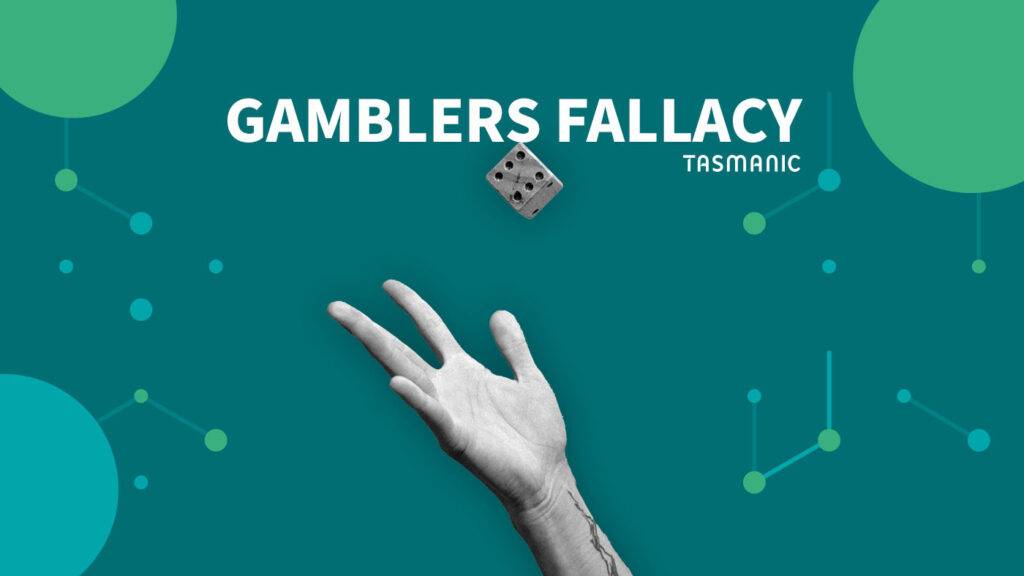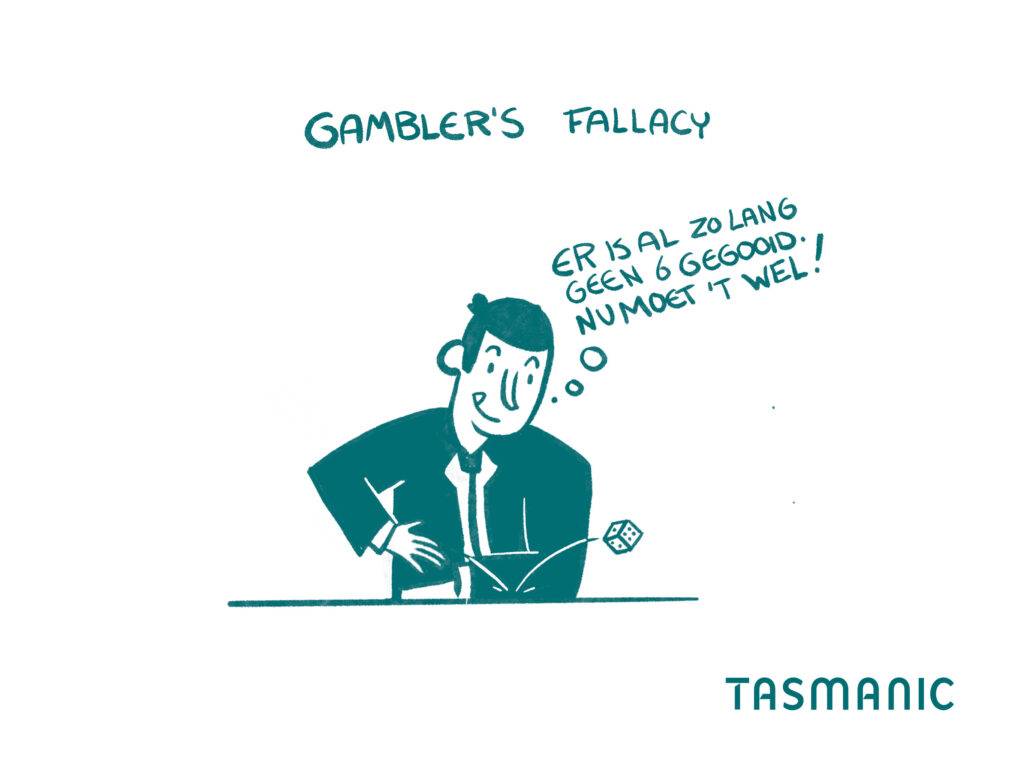
Last updated December 19, 2024
Introduction
The Gambler's Fallacy describes the brain's tendency to overestimate the influence of past events on what will happen next. And because you think there is a causal relationship, you may make the wrong decision. In everyday life, the Gambler's Fallacy also affects your customers, suppliers, colleagues and conculeagues. How do you deal with this as an entrepreneur? We are happy to give you tips!
What is the Gambler's Fallacy?
The Gambler's Fallacy is the brain's tendency to assume that the probability of something happening changes, as a result of what has happened before (Tversky & Kahneman, 1974).
If something has happened more often, one expects the chance of it happening in the future to be smaller. If something has not happened that often before, one expects the probability of it to be greater in the future. The brain unconsciously assumes a causal relationship (causation). This means that something that happens first will affect what happens next.
Ask someone what the probability of throwing six is, and they expect that probability to increase when no six has been thrown 24 times. But the probability of throwing six remains exactly one-sixth. This is true for every throw, because probability does not take into account what happened before and there is no causal relationship. Chance has no memory. And yet our brain has a very different expectation of it. Because of this causal expectation, wrong decisions are made faster.
Experiences and time also play a role. When events occur over a period of time, they affect the expectation of the next event (Barron & Leider, 2010). If you haven't thrown a six 24 times in the past hour, you expect that probability to be higher for the 25th time. But if you ask what the probability of six will be if you throw 25 times in a row later, you are likely to get a different answer. The experience of the previous throws is not there yet.

Our brain naturally tries to see patterns and logic because it does not like random events that cannot be explained. As a result, the brain looks for explanations in previous events when they have nothing to do with it.
Examples in practice
- Do you play a lottery and haven't won a prize in a long time? Then the step to stop buying lottery tickets may feel heavier because you expect that now it really should be almost your time to win something.
- A mother already has 3 sons, but very much wants another daughter. I guess that should work now, because 4 sons in a row would be quite a coincidence ... wouldn't it?
- The coming winter is bound to be severe because we have not had a severe winter for years.
- A lender who approved the previous application has an 8% lower probability of approving the next application.
Using Gambler's Fallacy to Your Advantage
It is good to realize that customers and suppliers may not know the gambler's fallacy. Keep in mind that their brain tries to see connections, even when there are none. Events that take place or choices you make as a business owner may be connected to what happened before.
Make use of the expected causal relationship
- Raise your prices without much trouble by pointing to inflation.
- Reject requests for leniency by pointing to previously granted requests.
- Point people to a newspaper article about your company to convince them to become customers.
Resources
Tversky, A., & Kahneman, D. (1974). Judgment under Uncertainty: Heuristics and Biases. science,185(4157), 1124-1131. doi:10.1126/science.185.4157.1124
Barron, G., & Leider, S. (2010). The role of experience in the Gambler's Fallacy.Journal of Behavioral Decision Making,23(1), 117-129. doi:10.1002/bdm.676
Are the results from your online marketing disappointing?
Request our no-obligation performance scan and we'll tell you where you're going wrong.

















 Team
Team FAQ
FAQ Vacancies
Vacancies Contac
Contac AWR
AWR Ahrefs
Ahrefs Channable
Channable ContentKing
ContentKing Leadinfo
Leadinfo Optmyzr
Optmyzr Qooqie
Qooqie Hubspo
Hubspo Semrush
Semrush




